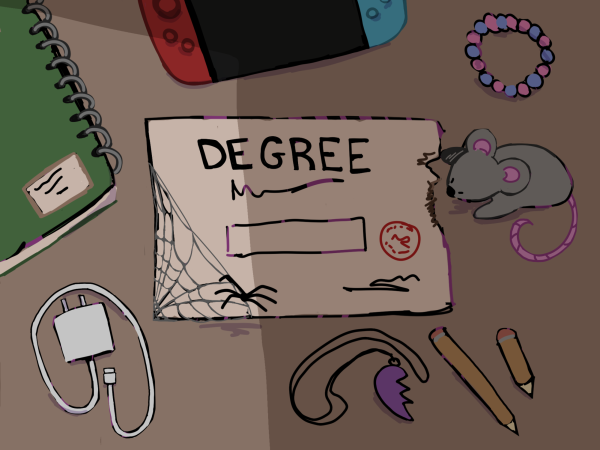Frats lose themselves in a haze of toxicity
Greek life has been on a downward spiral for the past decade.
Gone are the days when sororities and fraternities were dedicated to a culture of philanthropy. Now, they are symbols of party culture and hazing.
As freshmen in college, the rushing process is stressful for those going into fraternities and sororities. It pits people against each other as everyone vies for a spot in an elite Greek house.
Hazing is a process in which new recruits are forced to display their loyalty by accepting various challenges given to them by older members. These challenges often involve consuming inhumane amounts of alcohol and doing other demeaning tasks. Although meant to show loyalty and commitment, hazing does nothing but belittle new recruits and lower their sense of self worth.
Fraternities and sororities should not continue to exist. They are extremely harmful and often useless to what they intend to do. They claim to perform community service, but that isn’t worth the price of innocent lives.
Following the hospitalization of a student on Nov. 7 at a fraternity hosted event, San Diego State University suspended all 14 of its fraternities. Although the details surrounding the victims’ injury have not been released, the suspension is sure to affect the 1,400 fraternity members SDSU claims to have on their website.
According to The Spectrum The University of Buffalo’s student-run newspaper, 30 individuals have died from fraternity and sorority based hazing in the last five years. These are 30 deaths that could’ve been easily avoided had it not been for the toxic process many new recruits are forced to go through during initiation.
The intention of college is to learn, and while the process of “partying” is a fun idea that all students should enjoy, there is nothing fun about the risk of death. When students make the conscious decision to attend a college simply to be in a certain fraternity or sorority, that is where the line should be drawn.
Of course, no student expects to be walking towards their death. Greek organizations do a good job of marketing away from that idea, yet if they really cared, they would take precautions to stop such events from happening again.
While one would think that a death from a fraternity would stop any possibility of it happening in the future, they are wrong.
The death of a young man at Penn State in October was the second hazing death in the past two years at the college. Both the college and the fraternity have distanced themselves from the student who died.
It is clear that one death has no effect on the other.
Hazing isn’t the only deadly side effect within fraternity and sorority culture. The sheer lack of regulation given to these organizations by schools is what’s most harmful.
Many colleges suspend either a fraternity or sorority following the occurrence of such a life-endangering event, but a suspension is useless if the dangerous party culture continues after the organization has been re-established.
Yes, SDSU just suspended 14 of its fraternities, but will this actually change anything? Will it prevent any more fraternity related deaths at SDSU? The sad answer is no.
If universities continue to ignore the harm that Greek life poses in this current age, the lives of many more will be lost.

Ananya Nag is a news editor for The Californian. As a senior, this is her second year in Newspaper and she served as a reporter last year. Her favorite...

